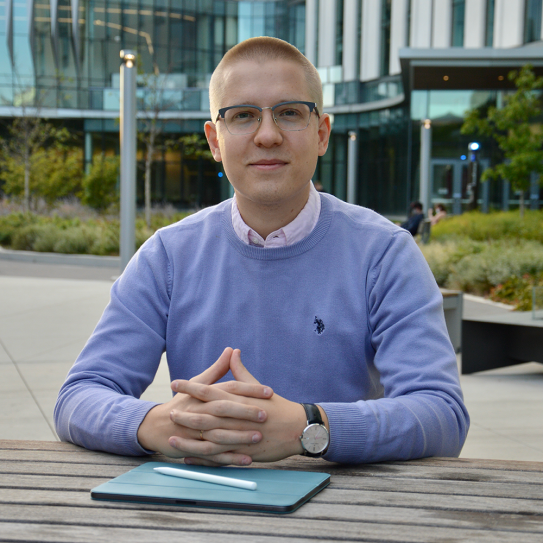Multi-Channel Physiological-Based inference of Brain States for Urban Optimization
- Revanth Reddy, Ph.D. Student, Department of Biomedical Engineering, Computational Medicine Laboratory
MENTOR:
- Rose Faghih, Ph.D., Associate Professor, Department of Biomedical Engineering, Center for Urban Science + Progress at NYU Tandon, Director, Computational Medicine Laboratory
Authors
Connor Xu, Qingyang Zhao
Research Question
How can a wristwatch-like sensor and mobile infrastructure be optimized to ensure accurate data collection and convenience while measuring skin conductance response across multiple parallel channels to estimate cognitive arousal?
Background
The Yerkes-Dodson Law suggests that an optimal arousal level maximizes human productivity, while too much or too little arousal results in decreased performance. In urban environments, dense concentrations of residents and workers make it difficult to track and optimize performance. This research focuses on the development of a wristwatch-like sensor and mobile infrastructure capable of measuring skin conductance response in multiple parallel channels to estimate cognitive arousal.
Methodology
Multiple parallel channels of skin conductance reduce noise and artifacting in current devices, allowing for estimation and modulation of arousal and performance of users in urban environments. Real-time data is obtained using Python to interface with Arduino IDE, allowing for continuous processing and analysis. Averaging techniques are implemented to stabilize GSR signals and minimize glitches. Smoothing algorithms, such as moving averages or low-pass filters, are employed to filter out noise and motion artifacts to optimize signal accuracy.
Deliverables
- Multi-Channel GSR Monitoring Tool with validated data visualization
- Technical Report detailing an analysis linking arousal levels to task performance, enabling actionable insights for urban health optimization
Datasets
| Source | Dataset | Years |
|---|---|---|
| Author-collected | Real-time Galvanic Skin Response (GSR) measurements from Arduino Uno-connected sensors | 2024 – 2025 |


